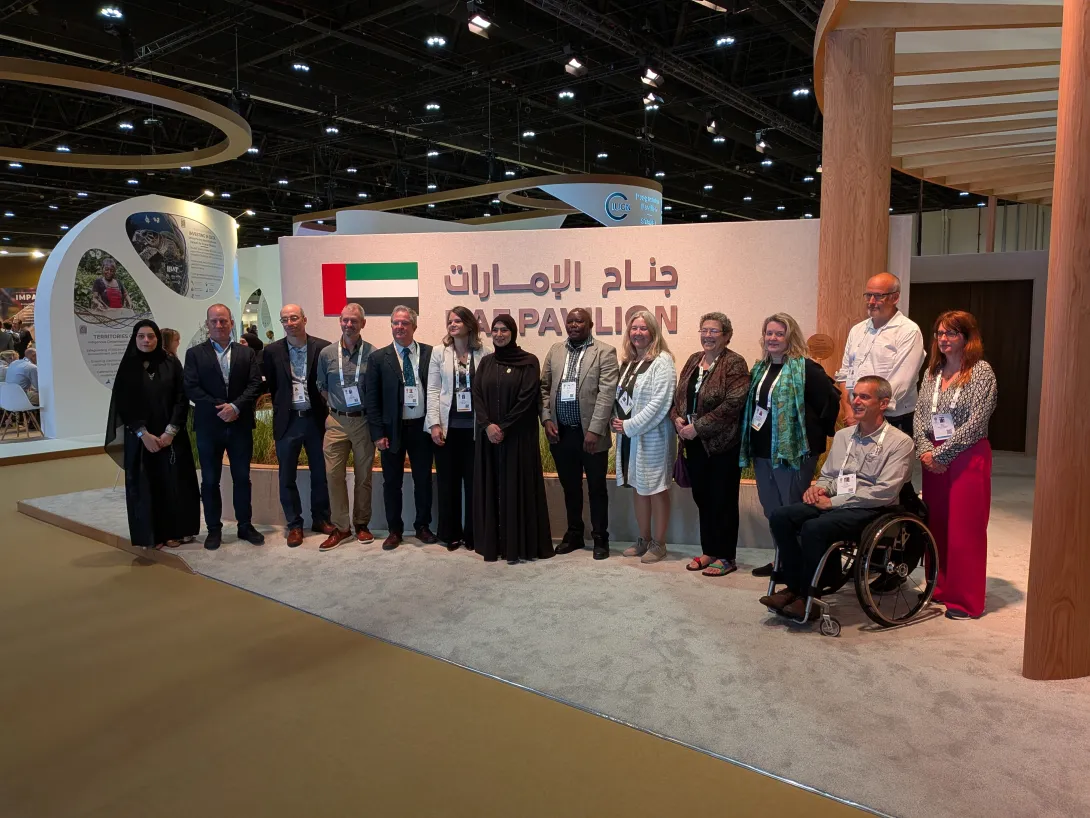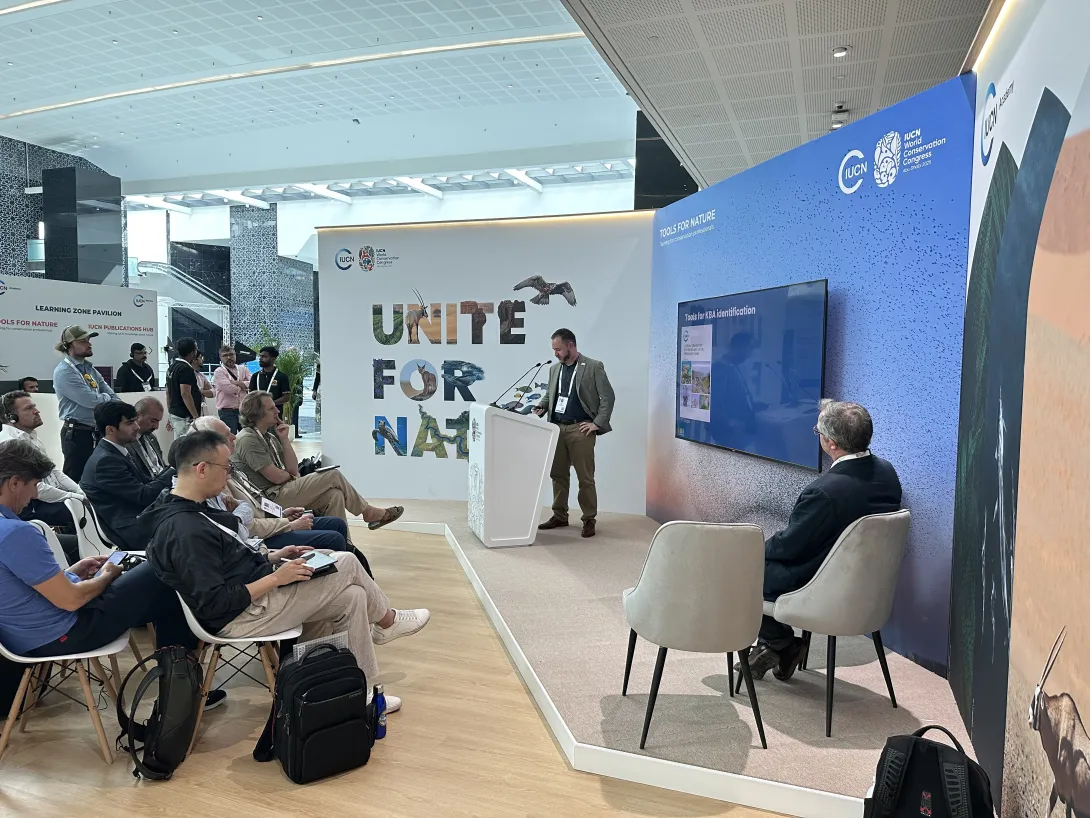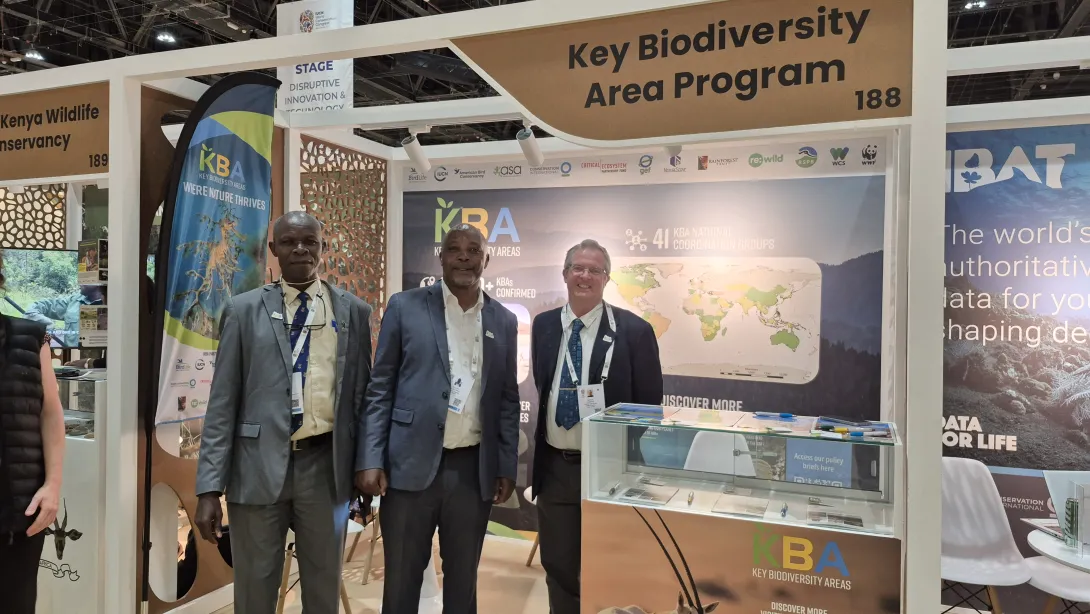KBAs at the IUCN World Conservation Congress 2025: A Global Momentum for Biodiversity Conservation
From landmark motions advocating for species-level corporate transparency to the Arabic translation of the KBA standards, the IUCN 2025 World Conservation Congress spotlighted KBAs as indispensable to global biodiversity goals.

The IUCN 2025 World Conservation Congress (WCC) wrapped up with a resounding message: Key Biodiversity Areas (KBAs) are now firmly on the global conservation map. With some 150 motions ratified, several ground-breaking resolutions specifically championed KBAs, underscoring their vital role in the future of biodiversity conservation.
Among the standout motions, Motion 80 demanded companies not only measure but openly disclose their impacts down to the species level within ecosystems—an innovation backed by a large majority of government and conservation members alike. If Target 15 of the KMGBF is to have an impact in reversing biodiversity loss and halting extinctions, a key goal of the KMGBF, then impacts on species have to be measured.

The Congress also adopted motions targeting oceanic KBAs: Motion 129 called for all nations to identify KBAs in the high seas, while Motion 27 focused on creating a marine conservation area in Macaronesia, updating the region’s KBA map. Other motions spotlighted the urgent need to protect amphibians (Motion 75), identify fungi and invertebrate KBAs (Motion 91), and enhance conservation of ecological connectivity through KBAs (Motion 127).

The KBA booth was a hive of activity, attracting keen interest—especially from government delegates eager to learn more. A milestone announcement came from the United Arab Emirates Ministry of Climate Change and Environment, which launched Arabic translations of the KBA Standard and Guidelines—a first in the Arab world—and committed to accelerating KBA conservation across the region. Neighbouring countries Oman, Jordan, Lebanon, Egypt, and Tunisia are already making strides with national KBA coordination groups actively updating networks.

Scientific evidence presented at the Congress showed that countries conducting comprehensive KBA updates double their number of recognised KBAs on average, revealing that those without recent updates are missing half of their vital biodiversity sites. This eye-opening insight prompted calls for global renewed efforts to update KBA networks, an appeal well received by many visiting the KBA booth.
The Congress underscored that KBAs are not just protected lands but dynamic, data-driven tools essential for guiding private sector risk assessments, donor investments, and national policies aligned with the Kunming-Montreal Global Biodiversity Framework. Indigenous Peoples and local communities managing these areas were recognised as crucial partners in stewardship, emphasizing that conservation success blends science and local leadership.
By spotlighting KBA advancements and forging cross-sector partnerships, the IUCN 2025 Congress created a path for accelerated biodiversity conservation. The global community left Abu Dhabi energised, acknowledging that safeguarding KBAs is key to halting extinctions, restoring ecosystems, and securing a sustainable future for all.
The WCC 2025 strengthened a worldwide movement to identify, conserve, and invest in the planet’s most irreplaceable biodiversity sites. The future of global conservation is undoubtedly tied to these critical areas.
